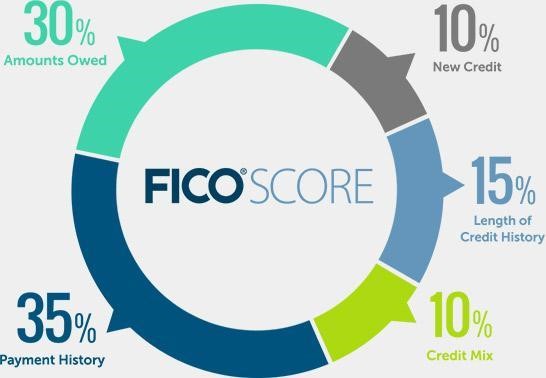Demystifying The Only Credit Score That Really Matters
I am an official brand ambassador for FICO. While I receive compensation for my participation as a brand ambassador, opinions are mine.
In the midst of the current pandemic and so many things in our lives changing quickly, one of the things that many people are thinking about is protecting their financial future, including maintaining good credit health.
Trust me your FICO® Score is VERY IMPORTANT. Our credit scores can affect many areas of our lives from how much you are charged to buy a car, a house, possibly rent an apartment, and more!
When I was finishing my last semester in college, I began the search to buy my first home. This immediately showed me the importance of my credit health and credit score. Before I could begin my search, I had to get pre-approved for my loan to determine how much house or loan size I could afford. Thankfully, I had been a good steward of my credit as that was the first hurdle I had to jump to begin the home buying process. But then when the lender looked at my credit report and FICO® Score, they also noticed I had some credit card debt. This was another step toward my goal and I had to pay off the credit card before my loan was finalized! Without focusing on strengthening my credit health and FICO® Score, I would not have been able to get approved and finalize my home purchase.
Now, let’s talk a little bit about the credit score basics that really matter.
Your FICO® Score, generally ranges from 300 to 850. FICO is also a completely separate analytics company, independent of the major credit bureaus. FICO provides the algorithm to Experian, Equifax, and Transunion. Each bureau creates a FICO Score based on the data that each credit bureau has compiled. This can be a bit confusing, which is why it is important to review your credit report data across all three, know your FICO Score at each bureau and confirm when talking to your lender that it is the FICO Score they are using.
This is really important. The score that really matters is the FICO® Score— the FICO® Score is used in over 90% of U.S. lending decisions. Yes, 90%! So when applying for a loan or any other credit your FICO Score is the number they are looking at!
I told you it was important!

Time to Demystify Your FICO Score
Now that you know why it is so important, here are a few things to keep in mind as you work on understanding your score and managing your credit:
Checking your score DOES NOT lower your FICO® Score.
It’s YOUR score, you can look at it as much as you want and it will not negatively impact your score.
Knowing the five credit scoring factors is vital.
If you have a clear understanding of the factors that impact your score, it will be easier to look for ways to increase it. This is what your FICO® Score is made up of:

- Payment history (35% of your scores):
Whether you’ve paid past credit accounts on time - Amounts owed (30% of your scores):
The amount of credit and loans you are using - Length of credit history (15% of your scores):
How long you’ve had credit - New credit (10% of your scores):
Frequency of credit inquires and new account openings - Credit mix (10% of your scores):
The mix of your credit, retail accounts, installment loans, finance company accounts, and mortgage loans
Things that ARE NOT included in your FICO® Score.
Now that we know exactly what is used to determine your score, lets quickly review what is not a part of your FICO Score. Ensuring that your score is an accurate representation of your credit profile is very important to FICO. Because of this, your score only considers information in your credit report and does not know where you live, how much you make, if you have a job or not, your profession, ethnicity or name.
“The FICO® Score doesn’t know your age, ethnicity, gender, name, race, religion or ZIP code.” – fico.com
Know where to get your FICO Score.
It’s hard to understand your credit score if you don’t know where to find it. To ensure there aren’t any surprises when you apply for credit, you can get your FICO Score at these places:
Many of your financial institutions provide access to your FICO® Score as well, for free! Check to see if your lender participates in the FICO® Score Open Access program here.
Having a clear understanding of how your credit works, paying your bills on time, keeping your credit card balances less than 30% of the entire credit limit and most importantly, communicating with your creditors if you are unable to pay your bills, are easy ways to help manage your credit.
To take advantage of free credit educational and counseling sessions as well as learn more about the myths and facts about FICO® Scores, check out ScoreABetterFuture.com and @ficoscoreabetterfuture on Instagram. Join me and register for FICO’s upcoming, virtual community education and financial empowerment conference this month.
For more information on your FICO Score and to stay informed as you manage your credit health, check out the links below:
You can join me and register for FICO’s upcoming, virtual community education and financial empowerment event on Tuesday, June 30 by visiting this link.

